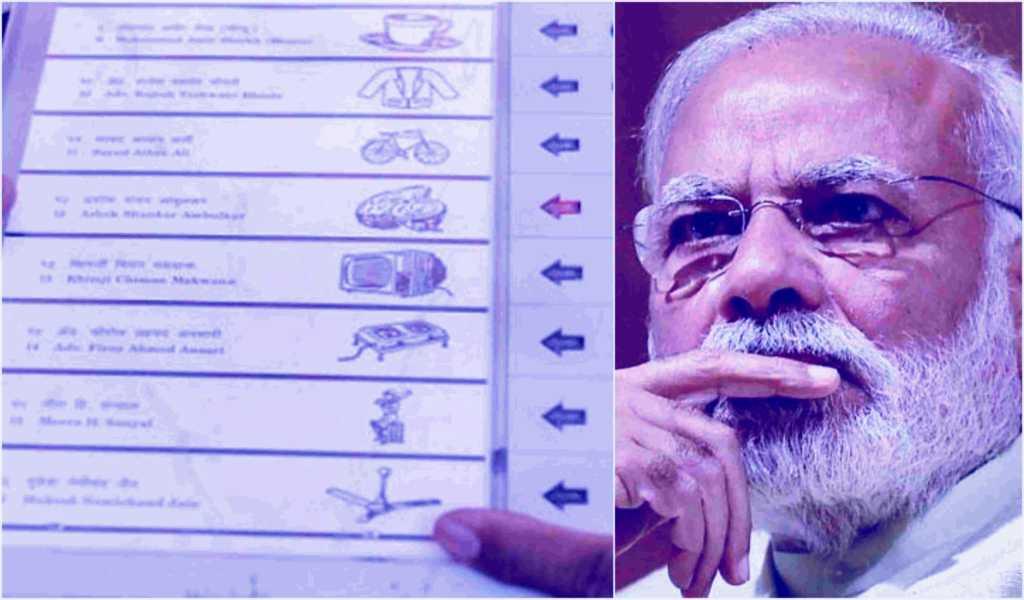A BJP study on the idea of ‘one nation, one election’ has submitted its report to Prime Minister Modi. This has come after Prime Minister Modi asked the BJP leaders and its cadres to initiate deliberations on the matter, so that a consensus could be reached. The report has suggested innovative and welcome modifications to deal with the issues of by-polls and mid-term polls.
BJP Vice-President Vinay Sahasrabuddhe, who presided over the public deliberations regarding simultaneous elections, stated that the BJP and the present government is of the view that while bringing in a no-confidence motion, the opposition party bringing such a motion must also bring a ‘confidence motion’ in favor of the next government. This would help in overcoming the issue of premature dissolution of the Lok Sabha, or any legislative assembly due to the passing of a no-confidence motion. The senior leader also proposed that in case a seat is vacated (i.e. resignation, or the demise of the elected candidate), the first runner-up be declared elected. This in turn would help in overcoming the issues caused by frequent by-elections, that take place across the country due to intervening circumstances.
This report has been preceded by a number of authoritative studies in the past one year, all of which unanimously suggest that simultaneous elections are in the greater good of the nation. A seminar organised by the Rambhau Mhalgi Prabodhini group in association with the ICSSR came to the conclusion that India is profoundly affected by the annual exercise of assembly elections. The electorate goes through almost six assembly elections every year. The frequent holding of elections hampers developmental projects and has an overall adverse impact on the governance in the country. The report also cited the huge expenditure on the exchequer, to the tune of Rs 1,115 crore and Rs 3,870 crore during the 2009 and the 2014 general elections respectively. The report further stated that if the elections for the 31 state assemblies are held simultaneously with the general elections, then the total cost would undergo only a small increase to Rs. 4,500 crore, which, in effect would result in saving the cost incurred during the holding of assembly elections separately.
A NITI Aayog report based on a discussion paper also criticised the present model, which leads to frequent elections that continuously disrupt public life. The report rightly observed that constant elections do not only cause diversion of administrative resources and security personnel thereby affecting everyday governance, but also perpetuates communal and caste politics. The report further suggests a two-phase election- the Lok Sabha and roughly half the states in 2019 and the rest of the states in 2021.
It is well-known that in India, the government of the day very often alters its policy when confronted with the upcoming assembly elections. Freebies and populist policies rule the roost as any parties seek to safeguard their stronghold. The politics of freebies and populism will be reduced if not altogether eliminated in case of simultaneous elections. The government will be able to push through its reforms agenda and will not be in election mode throughout its tenure of five years.
Moreover, the biggest benefit would be in the form of saving taxpayers’ money in holding frequent elections, and avoiding diversion of human resources in the form of government employees or the security forces on election duty. The BJP study report has also given effective solutions to the roadblocks created by the issue of mid-term polls and by-polls. Moreover, election commissioner O.P. Rawat stated in October last year that the poll panel will be logistically ready to hold simultaneous elections by September 2018, much before the 2019 elections.
Therefore, it seems that India is logistically on the path to a new era of simultaneous elections, fueling uninterrupted reform-driven governance. According to the election commissioner, the only formalities for the implementation of what will be the biggest electoral reforms in India till date are the green signal by the government and the necessary legal amendments.
